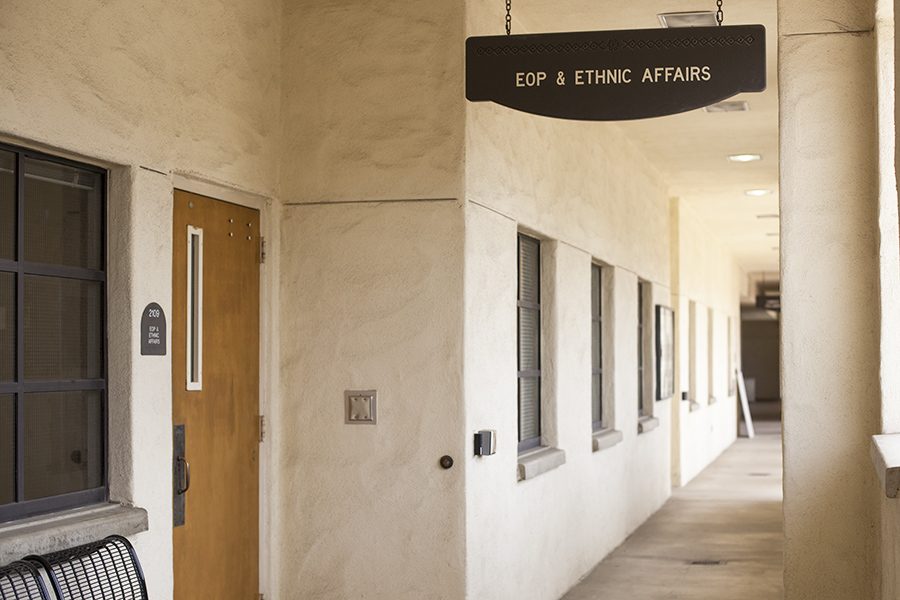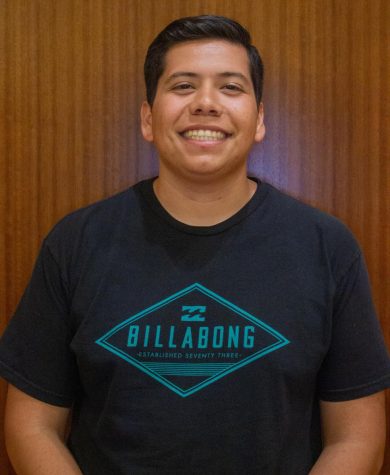An April 18 panel event hosted by San Diego State Associated Students gave students a glimpse into the issues undocumented San Diego State students have faced in the past.
SDSU and Education Without Borders alumni Susana Davis, Gabriella Flores, Ana Hernandez and Eduardo Mogollan each shared their experiences on what it was like to be undocumented students on campus. Much of this included worries rooted in financial uncertainty.
Mogollan said the stories they shared bring awareness to the issues faced by undocumented students and can help those students to find the resources they need.
“I think that sharing my story is an important tool that can empower and move others,” Mogollan said. “Those students who are undocumented and don’t feel comfortable coming forward, they can learn that they’re not alone.”
Prior to graduating in 2014, Mogollan faced financial uncertainty. Because he attended school prior to the Deferred Action for Childhood Arrivals immigration policy, his financial options to pay for his first semester at SDSU were limited. Mogollan received assistance from friends and family for the first semester at SDSU, but eventually received aid from the California DREAM act once the law went into effect in 2013.
Mogollan said increasing the resources available to undocumented students can create a more welcoming learning environment compared to the lack of resources he had while at SDSU.
“Undocumented students will have a voice and will be able to attain a normal college education,” Mogollan said. “(A college campus) should be a place where every student feels safe and I think that’s my hope for future undocumented students.”
Cynthia Torres, associate director for the Office of Educational and Opportunity and Affairs Program, spoke about the current and future resources for undocumented students and commuter students.
One resource that is already available is UndocuAlly Training, a two-hour program organized by the Undocumented Resource Center that looks to educate students, staff, faculty and administrators on the issues that undocumented students face, providing information on how they, too, can be supportive.
Torres said the training sheds light on the issues undocumented students and students from mixed-status families – families with members of varying citizenship statuses – may face and how this looks for them.
“(The training is) open to faculty, staff and peer students who want to know how to support our undocumented population,” Torres said. “It addresses issues and challenges of our undocumented students, as well as students who might be from a mixed status (family).”
Currently, there are more than 130 “allies” – people who have completed the training – at SDSU, surpassing the program’s original goal of 70.
Davis, who graduated in 2017, said the students who graduated before her laid a foundation for the programs to come to fruition.
“The previous graduates from 2014, they didn’t have anything, but they started something,” Davis said. “I look up to them.”
Another resource Torres said the Undocumented Resource Center hopes to offer in the future is financial assistance through the use of donors.
“What we’re also looking for are donors because that can help to offset costs that financial aid won’t, or in particular, when students’ … parents have been deported and they need an emergency fund to dip in to,” Torres said. “That’s something we do not have on this campus that we absolutely need for our students.”
Davis hopes the undocumented students on campus can gain support through the currently available resources like she did during her time at SDSU.
“We just want to be able to provide resources to students that don’t think they have resources on campus,” Davis said. “When I was in school I had all the support that I needed and I want that for other students.”









